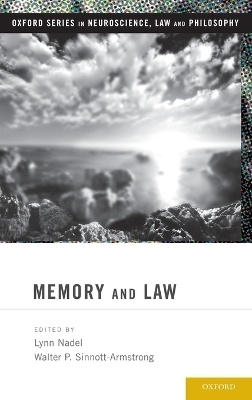
Memory and Law
Oxford University Press Inc (Verlag)
978-0-19-992075-4 (ISBN)
Lynn Nadel is Regents Professor in the Department of Psychology at the University of Arizona. Walter P. Sinnott-Armstrong is Stillman Professor of Practical Ethics in the Department of Philosophy and the Kenan Institute for Ethics at Duke University.
Contributors ; Part I. General Issues about Memory ; Introduction: Memory in the Legal Context ; L. Nadel & W. Sinnott-Armstrong ; 1. Emotion's Impact on Memory ; E.A. Phelps ; Part II. Memory in Eyewitnesses ; 2. Inconsistencies between Law and the Limits of Human Cognition: The Case of Eyewitness Identification ; D. Davis & E.F. Loftus ; 3. Lineup Procedures in Eyewitness Identification ; S.D. Gronlund, C.A Goodsell & S.M. Andersen ; 4. The Curious Complexity between Confidence and Accuracy in Reports from Memory ; H.L. Roediger, III, J.H. Wixted & K.A. DeSoto ; 5. Evaluating Confidence in Our Memories: Results and Implications from Neuroimaging and Eye Movement Monitoring Studies of Metamemory ; E.F. Chua ; 6. Evidentiary independence?: How evidence collected early in an investigation influences the collection and interpretation of additional evidence ; L.E. Hasel ; Part III. Memory in Jurors ; 7. Memory and jury deliberation: The benefits and costs of collective remembering ; W. Hirst, A. Coman & C.B. Stone ; 8. Realizing the Potential of Instructions to Disregard ; L.J. Demaine ; 9.: The Memory of Jurors: Enhancing Trial Performance ; A. Sandberg, W. Sinnott-Armstrong & J. Suvalescu ; Part IV. Neuroimaging Memories ; 10. Neuroimaging of True, False, and Imaginary Memories: Findings and Implications ; D.L. Schacter, J. Chamberlain, B. Gaesser & K.D. Gerlach ; 11. Detection of concealed stored memories with psychophysiological and neuroimaging methods ; J.P. Rosenfeld, G.B. Shakhar & G. Ganis ; Part V. Legislative Issues ; 12. Criminalizing Cognitive Enhancement at the Blackjack Table ; A. Kolber ; 13. Monetizing Memory Science: Neuroscience and the Future of PTSD Litigation ; F.X. Shen ; CODA ; 14. Ten Things the Law, and Others, Should Know about Human Memory ; M.A. Conway
| Erscheint lt. Verlag | 30.8.2012 |
|---|---|
| Reihe/Serie | Oxford Series in Neuroscience, Law, and Philosophy |
| Verlagsort | New York |
| Sprache | englisch |
| Maße | 236 x 160 mm |
| Gewicht | 717 g |
| Themenwelt | Sachbuch/Ratgeber ► Gesundheit / Leben / Psychologie |
| Geisteswissenschaften ► Philosophie | |
| Geisteswissenschaften ► Psychologie ► Allgemeine Psychologie | |
| Geisteswissenschaften ► Psychologie ► Verhaltenstherapie | |
| Naturwissenschaften ► Biologie ► Humanbiologie | |
| Naturwissenschaften ► Biologie ► Zoologie | |
| Recht / Steuern ► Allgemeines / Lexika | |
| Recht / Steuern ► EU / Internationales Recht | |
| ISBN-10 | 0-19-992075-3 / 0199920753 |
| ISBN-13 | 978-0-19-992075-4 / 9780199920754 |
| Zustand | Neuware |
| Informationen gemäß Produktsicherheitsverordnung (GPSR) | |
| Haben Sie eine Frage zum Produkt? |
aus dem Bereich


